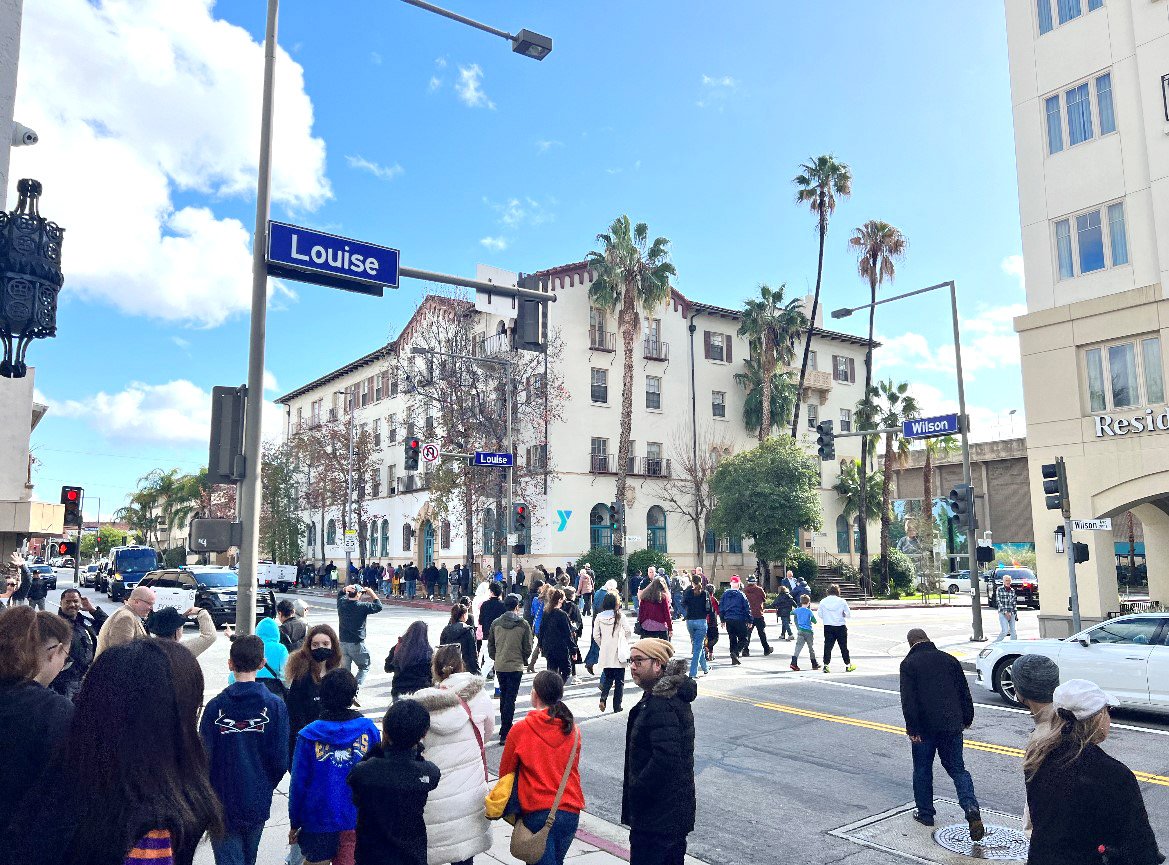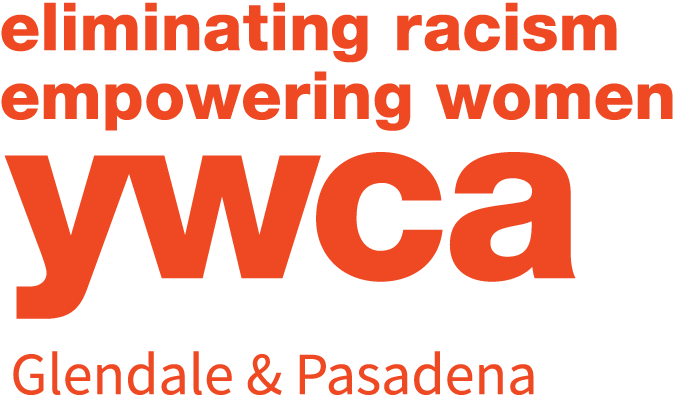Racial and Gender Equity Advocacy
YWCA’s approach to racial and gender equity and social justice goes beyond changing hearts and minds. We strive to transform communities, systems, and public policies through our programs, services, and partnerships.
We partner with survivors, changemakers, and local leaders to root out injustice and transform institutions. Together, we create a world that sees women, girls, and people of color the way we see them: Equal. Powerful. Unstoppable.
Our Impact
YWCA Glendale and Pasadena drives community & public policy change that advances economic security promotes equality and human rights, and improves safety and wellness for women, children, and families.
Racial Justice Challenge (RJC)
Each April, YWCA chapters across the U.S. host the Racial Justice Challenge to raise awareness about the negative impact of institutional and structural racism in our communities and to build community among those who work for racial justice. This annual campaign highlights the important work we do every day to dismantle systemic racism and break down racial barriers. It is also an invitation for elected officials, partner organizations, allied groups, and individuals to join us in the fight for justice to address the effects of policies, practices, enforcement, and education that disproportionately impact communities of color.
GLENDALE SUNDOWN TOWN RESOLUTION
-
Sundown Town Resolutions have three key elements: a city must acknowledge its past, apologize for the harm done, and atone for the effects of this harm. The resolution is a tool for advocacy, holding cities accountable for the impact of their histories of racism and providing an opening for advocates to present innovative solutions to address these harms.
-
In September 2020, YWCA Glendale and Pasadena made national, state, and local news in advocating for the successful passage of a historic Sundown Town Resolution in Glendale. This was the first resolution of its kind passed in California and only the third in the country. Historical documents, public accounts, and newspaper articles demonstrate that Glendale was a sundown town for the majority of the 20th century. Meaning Black people, including those who worked in Glendale, were asked to leave the city by sundown or face violence by police or community members. They were also excluded from residing or purchasing property in Glendale through discriminatory language in property deeds and covenants, and were made to feel unsafe due to the presence of the Ku Klux Klan and the American Nazi Party, who maintained active chapters and headquarters in Glendale.
-
Following the murder of George Floyd, YWCA and the Coalition for an Anti-Racist Glendale drafted a Sundown Town Resolution that puts on record the history of Glendale’s formal policies and culturally enshrined practices of racism and anti-Blackness. As research was presented to City staff, they commissioned their own historical report which additionally outlined the City’s extensive history of redlining. On September 15, 2020, the City report and the Coalition’s Resolution were presented at City Council and the historic Sundown Town Resolution was unanimously passed. This passage has inspired and ignited social action from neighboring former Sundown Towns. In December 2020, Burbank, CA unanimously passed its own Sundown Town Resolution. The City of South Pasadena passed theirs in February 2022.
To learn more about Glendale’s history as a sundown town, visit the virtual exhibit Reckoning: Racism & Resistance in Glendale presented by ReflectSpace Gallery at the Glendale Central Library.

YWCA Glendale and Pasadena is a proud supporter and founder of the annual Glendale Martin Luther King Jr. Peace Walk and Festival
The Peace Walk and Festival is a new community tradition begun by civic organizations to help bring the different civic sectors and diverse demographic groups together for a day of goodwill, a celebration of how our city has grown in its commitment to Dr. King’s ideals, and a rededication of ourselves to bring about a Glendale community where people of all colors receive the same access, same opportunities, and same treatment whether as resident or guest.
Advocacy Timeline
June 2021: Introduced model and advocated for the establishment of a tenant-landlord advisory body in the City of Glendale/Glendale Housing Authority. Motion successfully passed.
May 2021: Held Glendale’s Inaugural Martin Luther King Jr. Peace Walk, held on the anniversary weekend of the murder of George Floyd.
January 2021: Introduced proclamation to officially recognize January 18, 2021 as Dr. Martin Luther King Jr. Day in the City of Glendale.
January 2021: Advocated for and successfully moved City of Glendale to make the city manager hiring process open and led by an outside hiring firm.
Fall 2020: Member Participation in Glendale ReflectSpace’s Reckoning: Racism and Resistance in Glendale exhibit, which debuted in February 2021.
September 2020: Based on Coalition advocacy, the City of Glendale passed the Historic Sundown Town Resolution.
August 2020 – May 2021: Coalition members joined the GUSD Working Group for Culturally Relevant and Responsive Education to create action plans for a more just, inclusive, and anti-racist education in Glendale’s public schools
Consulting
Racial inequities are embedded in our organizations’ policies, practices, and operations. This is defined as institutional racism, seen in practice as unequal access to social programs and services or siloed decision-making processes. Business, government, and non-profit leaders can deliver more impactful and sustained results by increasing awareness of how racial inequities impact organizational goals.
Government and community change organizations we have partnered with include: Los Angeles County LA vs. Hate, the City of Glendale, the City of Calgary, Glenoaks Elementary School, and the Anti-Racism Committee of South Pasadena.



